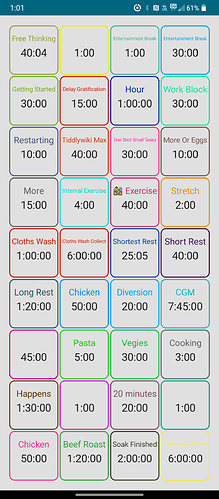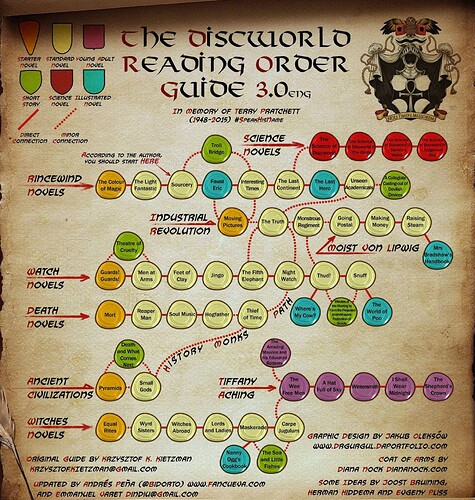I so hear you! I think of this as classic executive-function challenge. The Y-task tinkering is “Oooh, Shiny!” compared to slogging along with the primary task.
On balance, I think TiddlyWiki’s flexibility has given me constructive ways to weed-whack my way through thickets of boredom. When work is feeling “dead” to my motivational circuits, I so often yearn for the low-hanging dopamine-fruit of an intuitive interface for the workflow that feels like a drag.
Compared to other rabbit-holes of procrastination (online shopping, sorting and speculating about MTG cards, opening up TikTok — gads!), there’s less debilitating guilt involved with the temptation to spruce up the view templates (or dynamic tables or fancy filter-pills or powerful cascade conditions, etc.).
Procrastination guilt is relatively low because (1) over the years I really have developed skills and tools that are useful, and (2) actually doing some work with the new fancy TiddlyFeature I’ve just built — even if I’ve spent a bit too long on it — is a natural segue to re-engaging with the otherwise-stultifying thing that I’m tempted to avoid.
In particular, I want to recognize the situation rather than let it take me by surprise. So I ask myself: is my executive function challenged on this task partly because of the navigational/cognitive friction of my task, and could some tinkering actually make a difference to this predicament, and return me to the task with greater poise and clarity? If the answer is yes, and I’m not under a stringent deadline, I tend to approve the side-trip.
Of course, some times I walk away from a work day disappointed that I’ve prioritized my time badly, and sometimes I walk away frustrated that some “easy enhancement” mirage has yielded nothing but technical confusion. And some times I indulge in a whole new intriguing TW project that is not really helping me with my actual work! (It may be 99% self-indulgent curiosity, and only 1% insight gleaned from proof-of-concept development.)
I think the suggestion by @TW_Tones — to know yourself, allow some diversions, but keep them within a timed interval — can be a generous way of meeting your temptations halfway. 

 aint enough for that post!
aint enough for that post!




